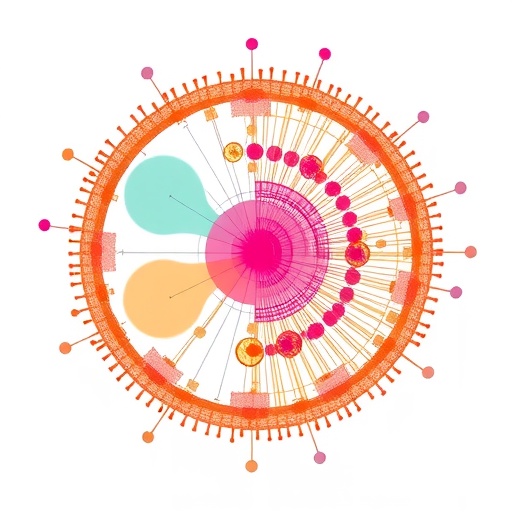
Emerging as a transformative resource in the realm of cancer pharmacogenomics, CPADS is a newly developed web-based tool designed to enable comprehensive pancancer analyses of drug sensitivity. By integrating extensive datasets from renowned repositories such as the Gene Expression Omnibus (GEO), The Cancer Genome Atlas (TCGA), and the Genomics of Drug Sensitivity in Cancer (GDSC), CPADS amalgamates data from over 29,000 clinical and experimental samples across 44 different cancer types. The inclusion of information linked to 288 therapeutic drugs further elevates its potential as a pivotal platform for advancing personalized cancer medicine and drug resistance research.
CPADS offers an expansive suite of analytical modules tailored for deep interrogation of large-scale omics and pharmacological data. Key analytical pipelines embedded within the platform include differential expression analysis, correlation analysis, pathway analysis, drug response profiling, and gene perturbation analysis. These integrated tools collectively empower researchers to dissect multifactorial relationships between gene expression dynamics, drug efficacy, and resistance mechanisms, thereby accelerating biomarker identification and therapeutic target discovery in oncologic contexts.
At the core of CPADS’s functionality lies its differential expression analysis module, which permits precise comparative assessments between control versus drug-treated samples or between drug-sensitive and resistant phenotypes. By enabling users to pinpoint genes whose expression levels fluctuate upon therapeutic intervention or in resistant cells, this module facilitates uncovering molecular determinants of drug response. Such insights are fundamental for elucidating resistance pathways and tailoring next-generation treatment strategies.
.adsslot_l0cFgvsiUq{width:728px !important;height:90px !important;}
@media(max-width:1199px){ .adsslot_l0cFgvsiUq{width:468px !important;height:60px !important;}
}
@media(max-width:767px){ .adsslot_l0cFgvsiUq{width:320px !important;height:50px !important;}
}
ADVERTISEMENT
Furthermore, CPADS’s correlation analysis capabilities extend beyond single-gene investigations, encompassing multigene correlation analyses that probe the interactions between gene expression profiles and drug half-maximal inhibitory concentration (IC50) values. This panomics correlation profiling is instrumental for identifying signatures predictive of drug sensitivity or resistance, advancing the understanding of complex pharmacogenomic landscapes prevalent across diverse tumor types.
Complementing these analytical modules, the pathway analysis functionalities of CPADS leverage sophisticated methodologies such as Gene Set Enrichment Analysis (GSEA), Single Sample Gene Set Enrichment Analysis (ssGSEA), and Pathview visualization tools. These approaches allow interrogation of upregulated or downregulated biological pathways within drug-treated cohorts, shedding light on cellular processes modulated by pharmacological agents. Dissecting pathway dynamics is imperative to unraveling mechanisms of drug action and resistance, aiding the development of pathway-targeted therapies.
The drug analysis module embedded in CPADS specifically targets the relationship between gene expression patterns and corresponding drug sensitivity metrics. This module aids in the discovery of potential drug resistance markers by statistically correlating gene expression data with IC50 values derived from pharmacological assays. Such correlative insights lay the groundwork for biomarker-driven precision oncology, facilitating the stratification of patients likely to benefit from specific anticancer agents.
A particularly noteworthy feature of CPADS is its gene perturbation analysis module, which utilizes datasets from GPSAdb and Cancer Genomics Project (CGP) databases to systematically screen for genes implicated in modulating drug resistance. This facet of the tool empowers researchers to assess the functional consequences of genetic perturbations on drug response phenotypes, bridging the gap between genomic alterations and pharmacological outcomes.
The efficacy and versatility of CPADS are exemplified in its application to real-world oncological challenges, as illustrated by the case study focusing on L1CAM in non-small cell lung cancer (NSCLC). GSEA-based enrichment analyses revealed significant upregulation of L1CAM expression in cisplatin-treated NSCLC samples, implicating this cell adhesion molecule in the development of chemoresistance. Further multi-drug correlation assessments corroborated L1CAM’s association not only with cisplatin resistance but also with decreased sensitivity to other agents such as bosutinib and rapamycin, underscoring its potential as a universal resistance biomarker.
What sets CPADS apart from existing pharmacogenomic resources is its unprecedented scale, integrating massive datasets and offering a flexible analytical environment that caters to researchers of varying computational expertise. Its user-friendly interface incorporates customizable data visualization options and detailed user guides, enabling seamless exploration of complex data without necessitating programming skills. This democratization of data analysis fosters broader engagement from the research community in deciphering the intricacies of cancer drug resistance.
Moreover, CPADS is designed with forward-looking adaptability in mind, poised to incorporate newly emerging datasets and cutting-edge analytical techniques as they become available. This scalability ensures that CPADS remains at the forefront of pharmacogenomics research tools, equipped to address evolving scientific questions in cancer biology and therapy.
In the landscape of precision oncology, where the heterogeneity of tumors and the complexity of drug responses pose significant challenges, tools like CPADS offer critical advantages. By synthesizing multi-dimensional genomic and pharmacological data, CPADS facilitates the identification of patterns predictive of treatment outcomes, enabling clinicians and researchers to better tailor therapeutic regimens.
Beyond biomarker discovery, CPADS’s comprehensive approach supports mechanistic investigations into drug resistance phenomena, helping uncover cellular pathways and genetic networks that contribute to diminished therapeutic efficacy. As a result, the tool not only aids in hypothesis generation but also provides a framework for experimental validation and drug development.
The scientific community stands to benefit immensely from such integrative platforms, especially those emphasizing accessibility and comprehensive dataset integration. CPADS exemplifies this ideal, combining a robust backend of extensive curated data with versatile, intuitive analytical modules. This synergy accelerates discovery and enhances reproducibility in cancer pharmacogenomics research.
In conclusion, CPADS emerges as a groundbreaking web tool that significantly advances the capacity to conduct pancancer drug sensitivity analyses. Its comprehensive dataset coverage, versatile analytical modules, and user-friendly design position it as a cornerstone resource for investigators aiming to unravel drug response complexities and combat cancer drug resistance effectively. As it continues to evolve with new data inputs and analytic innovations, CPADS promises to play a transformative role in guiding personalized cancer treatment strategies and improving patient outcomes.
Subject of Research: People
Article Title: CPADS: a web tool for comprehensive pancancer analysis of drug sensitivity.
Web References: http://dx.doi.org/10.1093/bib/bbae237
Keywords: Bioinformatics, Cancer
Tags: biomarker identification in cancer researchcomprehensive cancer drug analysisCPADS cancer drug sensitivity analysisdifferential expression analysis in cancerdrug resistance research tooldrug response profiling methodsgene expression data integrationlarge-scale cancer datasets analysisomics data analytical modulespan-cancer pharmacogenomics toolpersonalized cancer medicine platformtherapeutic target discovery in oncology





